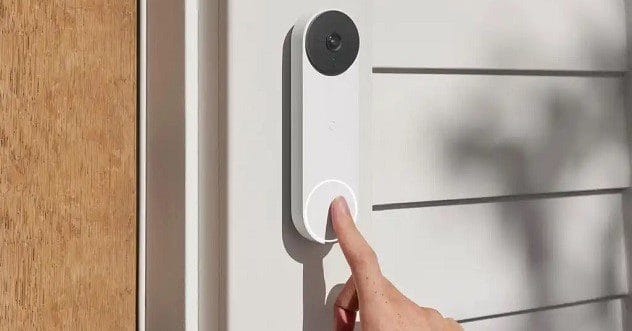Doorbell cameras like Ring and Nest are popping up on more and more front porches. They promise extra security by keeping a watchful eye on your home. These tiny devices record activity and alert you to visitors. But while companies say they’re great for safety, many people worry.
Critics argue these smart gadgets feed into our fears. They question if constant surveillance is an attack on our privacy. Plus, can we really trust big tech companies with so much information? Let’s explore ten ways these doorbell cameras might actually put your security and privacy at risk.
10. Big Companies Are Gathering Your Data
It’s a well-known fact that major tech companies love collecting our data. There’s a lot of money in tracking personal information. Social media, streaming services, and messaging apps all do it. Doorbell cameras are no different.
So, what exactly do these devices know, and how much do they keep? It’s often more than users think. Take Amazon’s Ring, for instance. They store usual details like your name, address, payment info, and Wi-Fi details. But they also log every doorbell press, motion detection, and even when you zoom in on footage.
What about the privacy of people just walking by? This is where things get even more concerning. The cameras aren’t always filming, but movement up to 25 feet away can trigger them. This means a private conversation on the sidewalk could be recorded without anyone knowing. Ring would then have access to that footage. Tests by Consumer Reports found Ring devices can capture audio from 20 feet away. Matthew Guariglia from the Electronic Frontier Foundation (EFF) states, “Ring impacts everybody’s privacy… most immediately, it impacts the people who walk down the streets every day.”
9. Hackers Can Unleash Threats and Racist Taunts
In December 2020, a group of Ring users sued the company after their devices were hacked. They claimed that poor security left them vulnerable to blackmail, death threats, and racist harassment.
There are many stories of hackers breaking into smart doorbells to bother or scare people. One older woman in an assisted living facility heard a voice say, “Tonight, you die,” followed by sexually abusive comments. Her family had bought the camera to help keep her safe, but the incident made her feel too scared to stay. In another instance, a mother reported that hackers played scary music from the movie Insidious to frighten her children.
The lawsuit involved over 15 families who shared similar disturbing experiences. They accused Ring of “blamed the victims and offered inadequate responses and spurious explanations.”
8. Los Angeles Police Questioned Over Protest Surveillance
In 2020, after the murder of George Floyd, Black Lives Matter protests spread across the U.S. The Los Angeles Police Department (LAPD) faced criticism from privacy advocates. They accused the police of using doorbell camera footage to target people’s right to protest.
The EFF made these claims in February 2021. After the protests, police asked residents and businesses to share footage to help investigate alleged crimes. A police spokesperson said this was “not uncommon.” However, the EFF argued that this surveillance was an attack on the privacy of protesters, most of whom were peaceful and acting within the law.
7. Ring Employees Gained Access to Private Videos
In January 2020, Amazon’s Ring faced another scandal. It was revealed that some employees had accessed users’ private videos. A few months earlier, five Democrat senators had written to CEO Jeff Bezos about the company’s security practices. They asked why staff in Ring’s Ukraine office had access to customer footage.
In its reply, Ring admitted to investigating four employees for improperly accessing customer videos. The company stated that while the employees were technically allowed to view the footage, they “exceeded what was necessary for their job functions.” All four staff members were fired.
6. Delivery Workers Under Constant Watch
The rise of doorbell cameras means delivery workers now face intense monitoring by customers. This is according to the tech institute Data & Society in their report “At the Digital Doorstep.” They state, “The result is a collision between the American ideas of private property and the business imperatives of doing a job.”
The institute explains that delivery workers are part of the growing gig economy. They are treated as independent contractors, not employees. Delivery companies say this offers flexibility, but Data & Society disagrees. “These marketed perks have hidden costs: drivers often have to compete for shifts, spend hours trying to get reimbursed for lost wages, pay for wear and tear on their vehicle, and have no control over where they work.”
The report found that smart doorbells make things worse. Customers with video monitoring are more likely to report delivery drivers or shame them by posting footage online. This puts more pressure on workers already trying to meet tough productivity goals.
5. Violent Customers Endanger Innocent People
Smart doorbells can threaten the safety of not just customers, but also innocent passers-by. This is especially true if the camera owner is prone to extreme and unjustified violence.
In October 2022, a Florida man received medication meant for someone else. He went to the apartment of Gino and Rocky Colonacosta and left the prescription at their door. This triggered an alert on their video camera. The Colonacostas’ reaction was, as Polk County Sheriff Grady Judd put it, “crazy.”
Armed with .45-caliber handguns, the father and son went outside looking for an intruder. They found a woman sitting in her car nearby, checking her phone. Gino, 73, pointed his gun at her car and told her to get out. Panicked, she drove away. The Colonacostas then opened fire, shooting seven rounds at her fleeing car. “Our victim was that close to death,” Sheriff Judd told reporters. “And certainly, had there been a baby in the car seat, the baby would’ve been killed.”
4. Software Glitch Exposes Private Doorbell Footage
Google Nest offers various smart devices, including doorbell cameras. In 2020, a Nest Hub user saw camera footage from a front door on her device. The problem? She didn’t own a smart doorbell, and the porch shown belonged to a stranger.
A software issue had given this user accidental access to another person’s doorbell feed. Her husband posted about it on Reddit, trying to find the owner of the Nest system they were now unintentionally viewing. Many commenters were understandably concerned. Another Reddit user, thought to be a Google employee, offered to look into the problem. However, Google made no public statement about this error.
3. Neighbor Sued for Privacy Invasion Over Smart Doorbell
A man in Britain might have to pay his neighbor £100,000 ($120,000). A judge ruled that his smart doorbell was too intrusive and violated his neighbor’s privacy.
John Woodward, a 45-year-old audiovisual technician, installed the device in 2019 after a car theft attempt. He wanted to boost security around his home. However, his neighbor, Doctor Fairnhurst, disagreed. She claimed the doorbell camera put her under constant surveillance, filming and recording audio of her house, garden, and parking area.
In 2021, a judge agreed with Dr. Fairnhurst. Judge Melissa Clarke found that Mr. Woodward had broken several British laws, including the Data Protection Act 2018 and the UK General Data Protection Regulation (GDPR).
2. Ring App Accused of Secret User Monitoring
The Electronic Frontier Foundation (EFF) raised more concerns in January 2020. This time, they focused on the Ring for Android app, claiming it could be monitoring users without their full knowledge.
An EFF investigation found that the app frequently shares personal user information with third-party trackers. This data can include names, IP addresses, mobile network carriers, and sensor data from the device. The EFF noted that while many apps share data, Ring stood out due to the number of trackers involved. Ring was also criticized for not fully disclosing the extent of its data collection on its website.
Bill Budington, who wrote the report, said, “Ring claims to prioritize the security and privacy of its customers, yet time and again, we’ve seen these claims not only fall short but harm the customers and community members who engage with Ring’s surveillance system.”
1. Sharing Private Footage with Police Without Consent
Perhaps one of the most alarming stories about Ring involves sharing footage with the police. In the first half of 2022, the company allowed authorities to view at least 11 recordings without the owners’ permission or a warrant.
This information surfaced after Senator Ed Markey questioned Ring’s surveillance practices. Ring usually states that police cannot access footage unless it’s posted publicly or shared directly by the user. The letter to Senator Markey was the first time Ring confirmed sharing information without user consent or a warrant.
Amazon claims they only share footage in emergencies to prevent death or serious physical harm, such as in cases of kidnappings or attempted murder. However, privacy advocates are outraged by these revelations. Some have even accused the company of helping to create a widespread civilian surveillance network.
Doorbell cameras offer a sense of security, but it’s important to understand the potential downsides. From data collection and hacking risks to privacy invasions and misuse of footage, these devices come with serious concerns. Being aware of these issues can help you make a more informed decision about whether a smart doorbell is right for you and take steps to protect your privacy if you choose to use one.
What are your thoughts on doorbell cameras? Do the benefits outweigh the risks? Leave your comment below!










